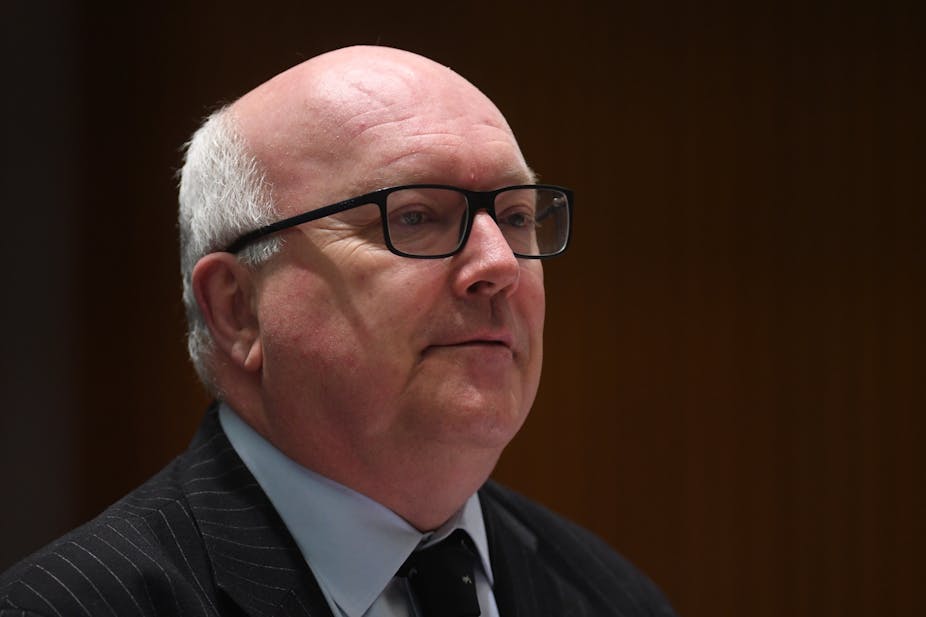Labor says decisions made by Barnaby Joyce and Fiona Nash are open to legal challenge but Attorney-General George Brandis suggests the two former ministers were not the ones who actually made them.
Joyce and Nash were disqualified from parliament by the High Court on Friday for having been dual citizens when elected.
The opposition says at least 20 executive decisions and 47 ministerial announcements made by Joyce could be open to challenge.
These include the controversial decision to relocate the Australian Pesticides and Veterinary Medicines Authority to Armidale in his New England electorate, various grants and appointments, and any decisions under the Water Act, where he had power to determine claims for payment to water access entitlement holders.
The list comes from a paper Labor sought from the Parliamentary Library on the ministerial decision-making powers exercised by Joyce and Nash, and specific important decisions they made.
Joyce had ministerial responsibility for agriculture and water resources. Nash was minister for regional development and regional communications.
The opposition says at least eight executive decisions and 43 ministerial announcements made by Nash could be subject to challenge. These included elements of each of the regional NBN rollout, the mobile blackspots program and the rural decentralisation program, as well as grants under the Building Better Regions Fund.
Labor has as well released updated advice from senior silks Matt Albert QC and Matt Collins QC about the legal status of decisions made by the former ministers.
The Constitution allows a minister to hold office for three months while not being a member of parliament.
The legal advice says that any decision made by Joyce or Nash after three months had lapsed from their appointment as ministers was open to challenge.
“Any decisions made by Joyce and Nash, purportedly in their capacity as a minister, on and after October 20, 2016, are open to challenge.
"The likelihood of proceedings being brought to challenge such decisions is high, having regard to the significance and seniority of their relevant portfolios,” the advice says.
Brandis said the government was looking very carefully at the question of the validity of the former ministers’ decisions. But “I doubt that there are many if any decisions that would be relevant in any event”, he said on Sky.
“Most decisions that ministers make are in fact made by the cabinet on the recommendation of ministers. Appointments are made by the governor-general or the federal executive council on the recommendation of ministers. So I think you will find that there is no legal consequences here at all.”
Tony Burke, manager of opposition business, told the ABC there would be “vested interests” with an interest in challenging decisions of Joyce.
“When you’re in charge of Australia’s quarantine service, there’s importers and exporters who make or lose money depending on decisions you make.
"There’ll be a series of decisions there with vested interests now combing through, and there being a whole lot of legal doubt over those decisions on the simple basis that Barnaby Joyce didn’t do what Matt Canavan did,” Burke said.
“Matt Canavan turned out to have been legally in parliament. But at least he took the precaution to step aside so that there was no risk to there being illegitimacy to his decisions.
"Barnaby Joyce and Malcolm Turnbull decided, oh no, nothing to see here, let’s just ignore the last 25 years of how the High Court ruled on this and pretend that it’s all going to be different this time.”
Burke said there was a reason why the government had not revealed the solicitor-general’s advice. “I don’t believe for a minute it was as strong as they were claiming,” he said.

